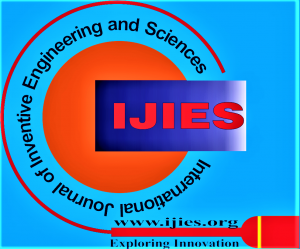![]()
A Novel Approach for Knowledge Extraction using Ontology Construction Method
Ahmed Mudassar Ali1, M. Ramakrishna2
1Ahmed Mudassar Ali, Research Scholar, Bharath University, Chennai, India,
2M. Ramakrishnan, Professor, School of Information Technology, Madurai, Kamaraj University, Madurai, India..
Manuscript received on March 01, 2015. | Revised Manuscript Received on March 09, 2015. | Manuscript published on March 20, 2015. | PP: 3-8 | Volume-3 Issue-4, March 2015 | Retrieval Number: D0597033415/2015©BEIESP
Open Access | Ethics and Policies | Cite
© The Authors. Blue Eyes Intelligence Engineering and Sciences Publication (BEIESP). This is an open access article under the CC BY-NC-ND license (http://creativecommons.org/licenses/by-nc-nd/4.0/)
Abstract: In recent research, Ontology construction plays a major role for transforming raw texts into useful knowledge. It reduces the difficulties in understanding the information and semantic interpretation. The proposed method in this paper supports efficient construction of ontology and applies efficient method to train the data before taking into testing process. The proposed approach uses the phrase-pairs to extract useful knowledge and uses data mining techniques and neural network approach to express the knowledge well and also it improves the search speed and accuracy of information retrieval. This method avoids noise generation by analyzing the relevancy of tags to the retrieval process and shows somewhat better recall value compared to other methods. In this approach an optimized reasoners is applied to reduce complexity in the key inference problem. The formulated ontology can help clearly expressing its meaning for various concepts and relations. Due to the increasing size of ontology repository, the matching process may take more time. To avoid this, this method forms a hierarchical structure with semantic interpretation of data. The system is designed to extract useful knowledge from data sources that are constructed by collecting data from diverse sources.
Keywords: back propagation, domain ontology, knowledge extraction, information retrieval, agricultural environment
